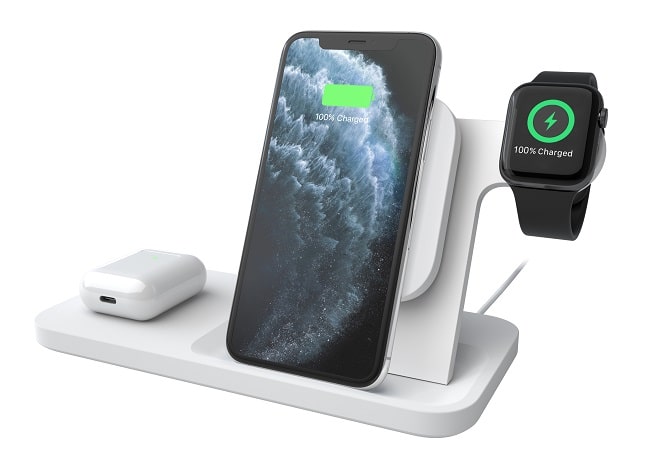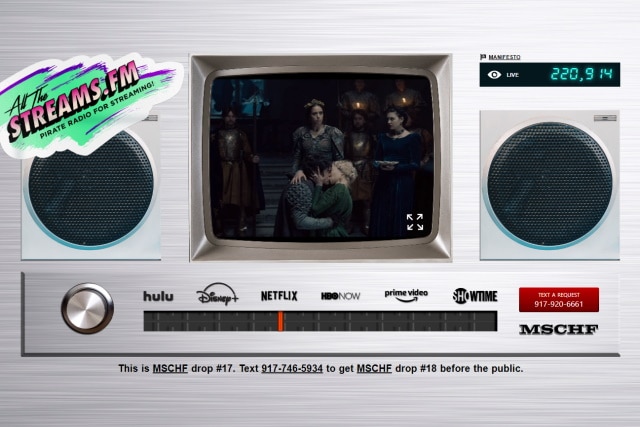
Open source vulnerabilities increase almost 50 percent in 2019
Open source components are the building bricks of many of today's software applications, but this puts them under increased scrutiny with regard to security.
Open source management specialist WhiteSource has released a new report which shows that disclosed open source software vulnerabilities in 2019 skyrocketed to over 6000, up almost 50 percent.

How to legally download any version of Windows 10, Windows 7, Windows 8.1 and Microsoft Office
If you want to download an ISO file of the latest version of Windows 10, the process is very straightforward -- just use Microsoft’s Media Creation Tool to generate the image file for you.
But what if you want an older version of Windows 10, or one of the many Windows Insider builds? Or what if you want a copy of Windows 7 or 8.1, or a copy of Microsoft Office? We have the answer.

New tools help businesses understand consumers while protecting their privacy
We reported earlier today on consumer worries over who holds their data but for companies needing to collect data on their customers there's a tricky balancing act too.
Identity as a service company FullContact is enhancing its platform with new tools to better identify and reach customers in real and engaging ways while continuing to provide those customers control over their personal information.

You shouldn't buy Amazon's Ring Video Doorbell 3
Video doorbells are some of the best examples of how the "connected home" can be truly beneficial. These doorbells can alert you to both visitors and intruders -- plus package deliveries and package thieves. Best of all, many models allow you to interact remotely, giving someone at your door the illusion you are home. Ultimately, they are ideal for both convenience and security.
Unfortunately, not all models are created equally. Amazon's "Ring" brand is undeniably the most popular video doorbell on the market, but sadly, it is also the most untrustworthy. You see, it has been found that not only does Ring have terrible security and privacy practices, but Amazon also has many deals with law enforcement. By purchasing a Ring, you are essentially helping turn your neighborhood into a police state.

Consumers worry their data is being held by brands they don't know
The average person's data is held by 350 brands and they probably don't remember 83 percent of them according to a new study.
The research from identity management platform Mine also finds 32 percent of data in people's 'digital footprint' didn’t even require users to open an account to store their information.

World is at permanent cyber war say security professionals
Just in case you weren't worried enough by the coronavirus, a new survey of almost 500 security professionals released today by Venafi reveals that 88 percent of them believe the world is in a permanent state of cyber war.
In addition 90 percent are concerned that the most significant damage will be inflicted on digital infrastructure with the most vulnerable industries being those that are undergoing rapid digital transformation and are essential to daily life.

GNOME 3.36 'Gresik' is here -- the best Linux desktop environment gets even better
One of the best things about Linux is having access to all the wonderful desktop environments (DEs). With Linux, you can often customize things to your heart's content, switching environments entirely if you prefer. Conversely, with Windows 10, for example, there is essentially just one user interface. Don't like it? Sucks to be you! If you run Windows, it is Microsoft's way or the highway. True, there is value in having all users sharing one experience, but ultimately, choice will always reign supreme.
Despite there being many great desktop environments available on Linux, only one can be the best. Consistently, for many years now, GNOME has been the greatest DE, and that is still true now. What makes it so wonderful? Well, GNOME 3.x is ideal for productivity, allowing the user to focus on the task at hand. Not to mention, it is beautiful and simple -- it is a no-nonsense computing experience. There's a reason both Ubuntu and Fedora use GNOME as their default environment.

Logitech launches new line of premium 'POWERED' Qi wireless chargers
Qi wireless charging is one of the best inventions ever -- from a consumer electronics perspective, at least. True, it's no penicillin or automobile, but it has been a godsend for smartphone users. No longer do you have to fiddle about with cables like early man. Instead, you can live like you are in the year 3020 and charge up your devices by placing them atop a pad. Hell, it's not just smartphones using this technology, but things like headsets and keyboards too! Yes, it seems like Qi is being added to everything these days, and I couldn't be more pleased.
Today, Logitech is expanding it Qi wireless charging game with a trio of new "POWERED" chargers. Evolving from the original model, this line of chargers is designed to focus on simplicity and excellence. In other words, not only do they charge your devices, but they will look good while doing it. After all, this is Logitech we are talking about -- its accessories are always excellent. In fact, the company is calling these chargers "magical."

CIOs believe the pace of digital transformation will increase in 2020
A new survey of over 300 enterprise chief information officers (CIOs) shows that more than 90 percent expect the pace of digital transformation to increase in 2020.
The report from Flexera shows that customer experience is the top driver of digital transformation efforts with 69 percent rating it very important, but only 36 percent considering themselves very mature in this area.

New mobile ERP suite meets growing demand for remote working
In response to fast-growing demand for business mobility, Priority Software is launching an enhanced suite of mobile ERP applications, offering customers a rich ERP solution and full access to core business processes from remote locations.
Priority Mobile ERP includes a variety of new out-of-the-box mobile apps, along with advanced capabilities for its Mobile App Generator. These include digital document signature, document sharing via email or text, camera activation, barcode scanning, secure credit card processing and more -- all in real-time and directly from the mobile device.

New structured data service allows faster access for applications
As enterprises make more use of widely-available analytics engines such as Presto, Apache Spark SQL or Apache Hive, they often run into inefficient data formats and face performance challenges as a result.
Open source cloud data software company Alluxio is launching a new Structured Data Service (SDS) that will allow developers and data scientists to benefit from a more simplified data platform that enables connections to different catalogs for access to structured data, with less copies and pipelines and more compute-optimized data.

Here's how to watch Netflix, Hulu, Disney+, HBO Now and more for free
There are a huge number of streaming video services available these days. Netflix is the undoubted leader of the pack, but the likes of Hulu, Disney+ and Amazon Prime Video are also vying for your attention... and subscription fee.
Paying for numerous streaming services can quickly add up, but a site that bills itself as "pirate radio for streaming" has something of a solution. It lets you watch Hulu, Disney+, Netflix, HBO Now, Amazon Prime Video and Showtime for free. But how long will it last?

Microsoft provides mitigation advice for critical vulnerability in SMBv3 protocol
Having inadvertently revealed details of an unpatched security flaw, Microsoft published an advisory that provides details on a recently detected vulnerability in the SMBv3 (Server Message Block) protocol. Attackers who exploit the issue successfully "gain the ability to execute code on the target SMB Server or SMB Client" according to Microsoft's disclosure.
Attacks against SMB Servers use a specially crafted packet that is sent to the target. Attacks against SMB Clients are more complicated as it is required to configure a malicious SMBv3 Server and get users to connect to it.

Microsoft releases .NET Core Uninstall Tool for Windows and Mac
Microsoft has released a new tool that will please anyone who has been frustrated by the behavior of Visual Studio and its tendency to leave behind old versions of .NET Core SDKs and runtimes after an upgrade.
The company has launched the .NET Core Uninstall Tool for Windows and macOS -- Linux users miss out for the time being -- which enables developers to free up disk space by tidying up the mess of leftover SDKs and runtimes.

82 percent of women in US cybersecurity roles believe the industry has a gender bias problem
Does the cybersecurity industry have an issue with gender bias? A new report from Tessian based on a survey of 200 female cybersecurity professionals in both the US and UK suggests that it does.
According to the results 82 percent of female cybersecurity professionals in the US believe that cybersecurity has a gender bias problem, compared with 49 percent of those in the UK.
